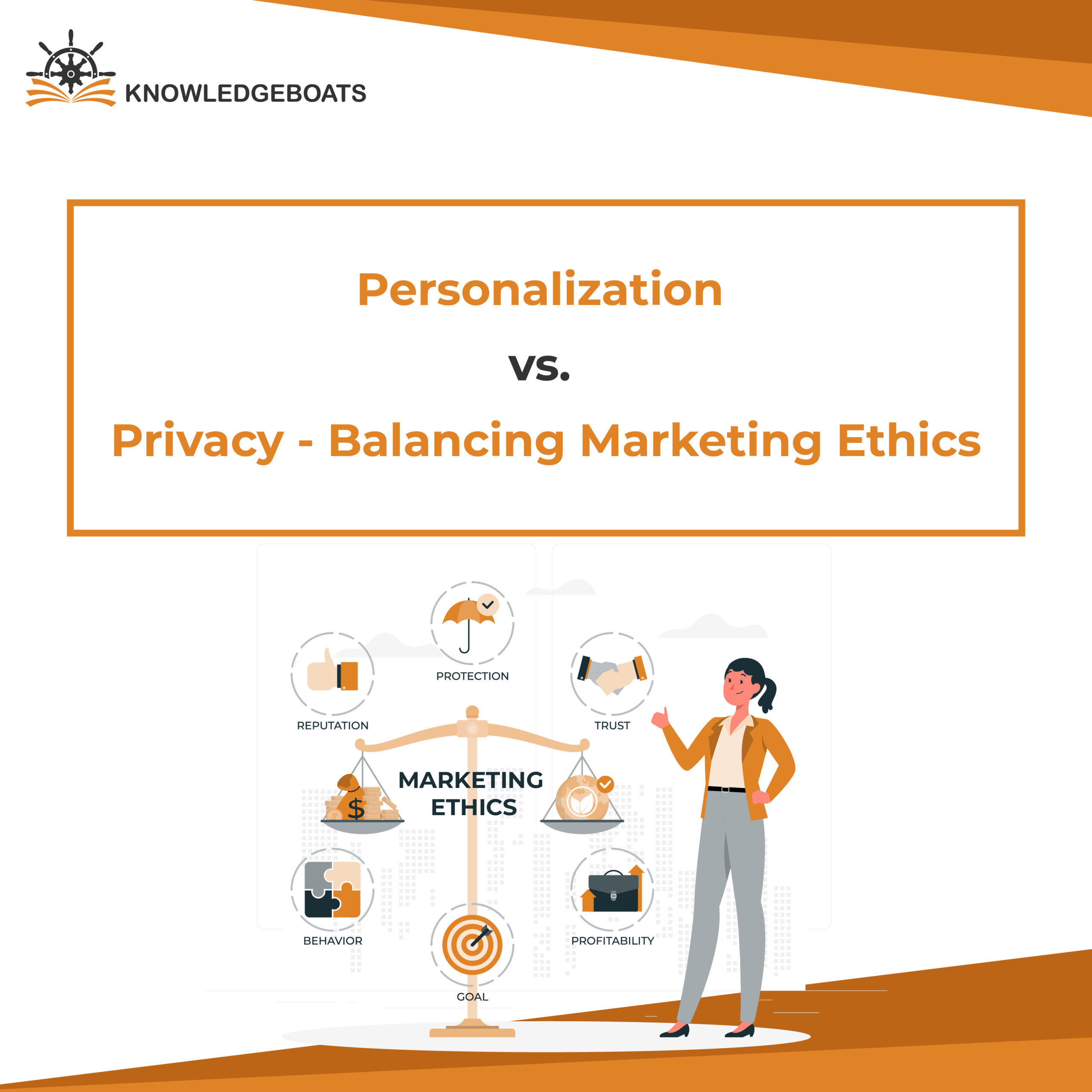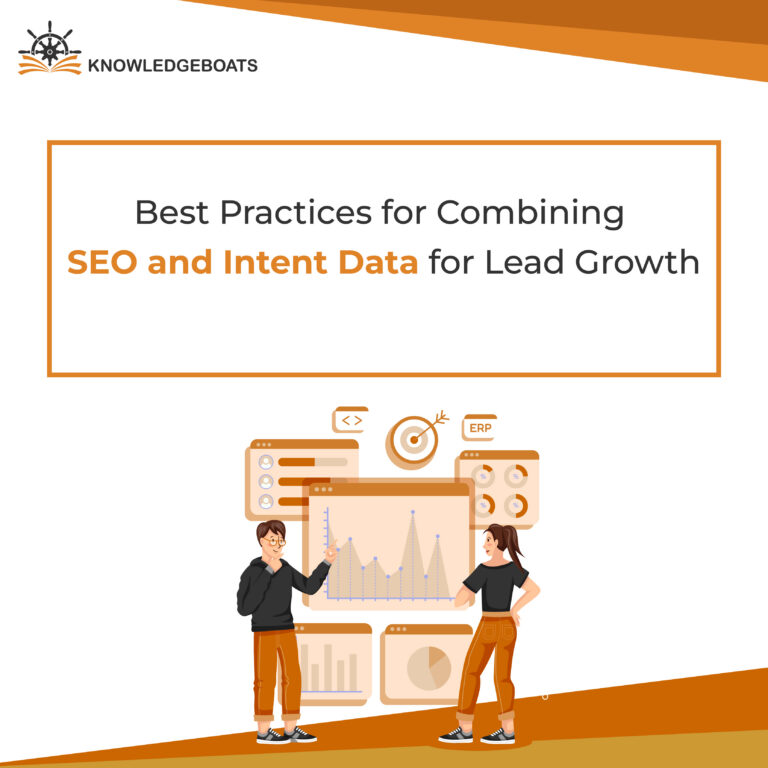
The growing power of personalization in marketing cannot be ignored. Personalization offers the ability to directly engage customers and speak about their needs, making them feel valued.
But Why Does Personalization Matter in B2B Marketing?
Personalization is about responding to and recognizing the unique interests and needs of every customer. Personalization in B2B Marketing is a strategic move that assists the companies to transform generic interactions into insightful conversations that foster a sense of loyalty. With personalization Businesses can analyze user’s past interactions, social media activities, and purchase history that can help customize their communications and offering services/products that resonate with them.
Growing concerns around data privacy and ethical dilemmas
Have you noticed a strange moment while scrolling through your phone, and an ad pops up? The product is exactly what you were planning to purchase. It feels like your phone could be eavesdropping, hampering your privacy.
This incident poses a challenge in today’s digital marketing world. The audience feels that the line between personalization and privacy no longer exists. However, businesses use personalization to offer better services, products, and experiences to the customer. Personalization requires analyzing purchase history, past interactions, and even social media activities, which are often reflected as a privacy breach to the customer.
Balancing personalization and privacy in ethical marketing strategies
With the inclusion of data-driven marketing strategies, personalization gets the critical issue of privacy at the forefront. Consumers are cautious about their data and how it is collected, stored, and used, making privacy in personalization a major concern. As per a report by Salesforce, 72% of customer said that they would opt-out from a company’s product or services if they sense privacy concerns.
How can you navigate through this issue?
Maintaining transparency is the answer. Consumers require honesty about their data use and storage. By creating transparency in communications and conveying how their information is used, brands can build trust that works as an exclusive currency in B2B.
Understanding both sides – Personalization vs. Privacy in Marketing
Personalized or one-to-one marketing involves the customization of a marketing message for an individual based on the information collected and stored by the company. This information can be their interests, purchase history, and demographic data, to name a few. It is targeted marketing that focuses only on potential prospects.
Whereas privacy is about giving individual’s right to control the information use, storage, and distribution of their information. It emphasizes the need to keep personal information secure and safe from unauthorized access.
To deliver personalized experiences responsibly, companies must respect consumer privacy rights, which protect personal data like:
- Web browsing cookies
- Contact information
- Purchase history
- Identifiable information
- Website behavior
- App engagement
Trade-off – Personalized Experiences vs. Protecting Consumer Data
Owing to rising consumer awareness and data privacy, companies need to adopt transparency as a tool to balance personalization and privacy. Think of a world where the consumer holds the power to control the data, allowing them to manage privacy settings or opt out of it. This not only empowers consumers but also shows brands’ commitment to consumer privacy rights and ethical marketing.
How is Personalization Violating User Privacy
The conflict between personalization vs. privacy is on the rise due to the adoption of AI, which includes analyzing and collecting vast amounts of data to offer personalized solutions. This may affect consumer privacy rights. However, personalization helps improve customer experience; it can also feel like a breach if transparency is not maintained. It became challenging for businesses to balance personalization and privacy as practice for ethical marketing strategies.
Personalized marketing may offer benefits that benefit the consumer and the company, such as improved efficiency, targeted marketing, and higher conversion rates. While the main concern lies in the company’s potential to misuse consumer data or use it in unethical practices, such as data breaches or selling personal information without consent.
Privacy-First Strategies for Personalized Marketing
In the past few decades, every company and industry started focusing on personalization. The rising use of social media platforms and third-party cookies tracking users generate huge amounts of personal data, which is further used for personalization.
To personalize content while respecting privacy, marketers should:
- Be transparent about data collection and usage
- Obtain explicit consent
- Anonymize user data
- Limit data access and retention
- Offer clear opt-out options
Role of AI and Privacy in Personalized Marketing
Integration of advanced technologies is the key to gaining a balance between personalization and privacy. AI and machine learning analyzes data to offer personalized experiences without hampering consumer privacy. Privacy-focused tools such as encryption and anonymization, keep consumer data secure while collecting insights which strengthens privacy and personalization at the same time.
How Blockchain Can Enhance Data Privacy in Personalized Campaigns.
The policies for data usage are constantly changing, restricting access to third-party cookies and generating the need for advanced solutions to collect and store data securely. This brings blockchain into the picture owing to its invaluable efficiency, which protects client information from theft and loss while keeping the data safe. With blockchain technology, you can regulate data access levels and observe user behavior while maintaining secrecy. This approach assists in building loyalty and trust in the company.
The Evolving Relationship Between Technology and Ethical Marketing Practices
The relationship between ethical marketing practices and technological progress is ever-changing. Marketers leverage AI in personalized marketing, raising privacy concerns. Most marketers believe blockchain technology can solve privacy problems by offering transparent and secure data management. The future of ethical marketing and data privacy revolves around balancing personalized experiences with individual privacy.
Conclusion
When balanced with privacy and trust personalization can significantly enhance customer experience, but only
As marketers, it’s our responsibility to be transparent with customers, respect their data and consent and leverage ethical technologies
The future of personalization lies not just in smarter tools, but in smarter strategies, ones that treat consumer privacy as a priority, not an afterthought.



